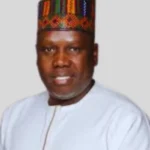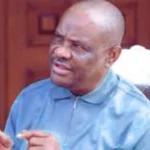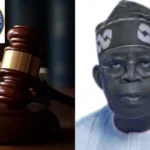The Nigerian Presidency has pushed back against recent comments by Dr. Akinwumi Adesina, President of the African Development Bank (AfDB), in which he claimed that Nigerians today are economically worse off than they were in 1960.
Dr. Adesina, during a keynote address at the 20th anniversary celebration of investment firm Chapel Hill Denham in Lagos, asserted that Nigeria’s GDP per capita has declined from $1,847 in 1960 to $824 in 2025. He warned that this reflects deep-rooted economic regression and urged Nigeria to adopt bold structural reforms to reposition its economy for global competitiveness by 2050.
However, the Special Adviser to the President on Information and Strategy, Mr. Bayo Onanuga, has refuted the figures, stating that they are incorrect and misleading. According to Onanuga, Nigeria’s GDP per capita in 1960 was only $93, based on a total GDP of $4.2 billion and a population of approximately 44.9 million.
“The numbers provided by Dr. Adesina do not align with historical economic records,” Onanuga stated in a press release issued on Monday. “Our GDP did not experience significant growth until the 1970s, following increased crude oil revenues.”
You May Also Want to Read: Nigerians Drag Governor Sanwo-Olu Over Criticism of Peter Obi’s Speech at Johns Hopkins University.
He outlined Nigeria’s economic evolution, noting that the GDP rose from $12.5 billion in 1970 to $164 billion by 1981. Per capita income, he added, peaked at $2,187 in 1981 before dropping slightly to $1,844 in 1982. It later reached a record high of $3,200 in 2014 after the GDP was rebased.
Onanuga emphasized that GDP per capita alone is not a sufficient indicator of living standards, and it fails to account for improvements in healthcare, education, transportation, and infrastructure over the decades.
“No objective observer can claim that Nigeria hasn’t made substantial progress since independence,” he argued. “Today, our GDP is at least 50 to 100 times greater than it was in 1960, pending the recalibration by the National Bureau of Statistics.”
The presidency also criticized Dr. Adesina for what it described as a politicized interpretation of economic data, likening his tone to that of political figures such as Peter Obi. “He spoke like a politician and did not carry out due diligence before releasing unverifiable claims,” Onanuga remarked.
You May Also Want to Read: Nigeria’s Economic Future Still Unclear, Says IMF After Key Review.
Adesina Calls for Urgent Reforms.
Despite the criticism, Dr. Adesina’s address highlighted pressing concerns about Nigeria’s long-term development trajectory. He compared Nigeria’s stagnation with South Korea’s rise from a lower GDP per capita in 1960 to over $36,000 today.
Adesina argued that Nigeria’s continued underperformance is a result of decades of poor policy implementation, institutional weakness, and over-reliance on crude oil. He identified five key reform areas: universal electricity access, modern infrastructure, rapid industrialisation, innovation-driven growth, and a competitive agricultural sector.
“Nigeria must not accept underdevelopment as its fate,” he said. “We need bold, transformative initiatives backed by strong institutions and governance.”
He cited the Dangote Refinery as an example of the type of large-scale industrial projects Nigeria should pursue. Adesina also urged the country to harness its pension funds, diaspora resources, and capital markets to finance development.
You May Also Want to Read: Nigeria’s External Debt Service to Climb to $5.2 Billion in 2025 Amid Fiscal Pressures – Fitch Ratings.
While Dr. Adesina’s remarks have reignited debate about Nigeria’s economic direction, the Presidency maintains that the country has made undeniable progress since independence. As stakeholders weigh both views, the conversation highlights the urgent need for reliable data, structural reform, and unified action toward sustainable development.















